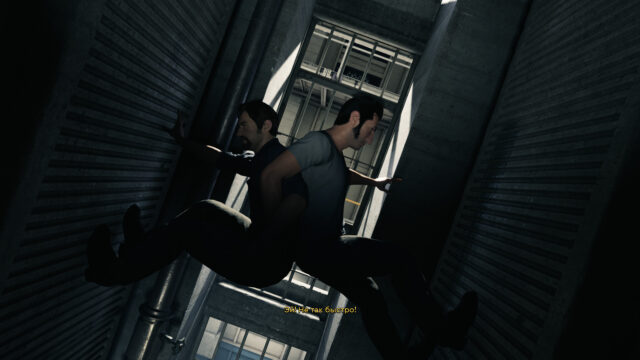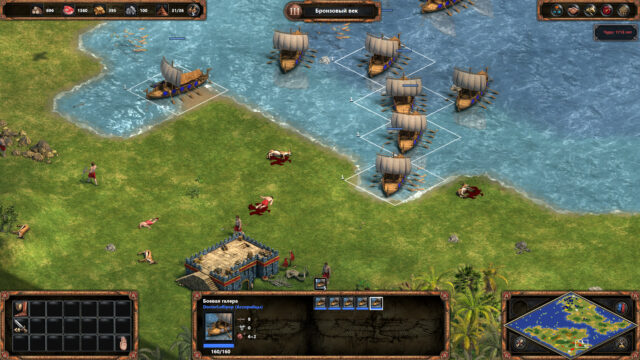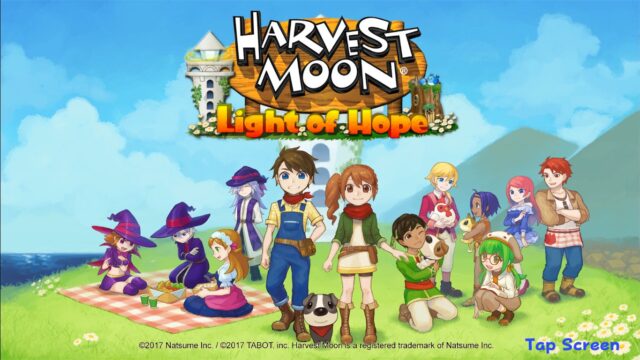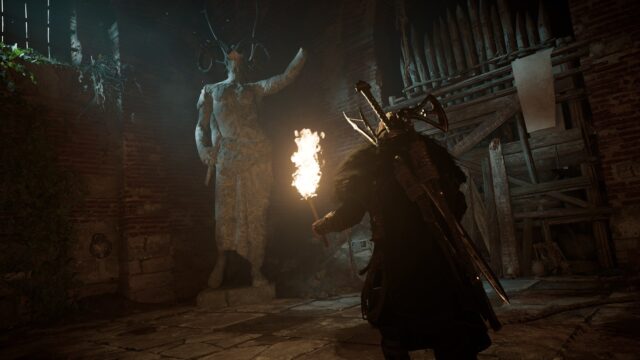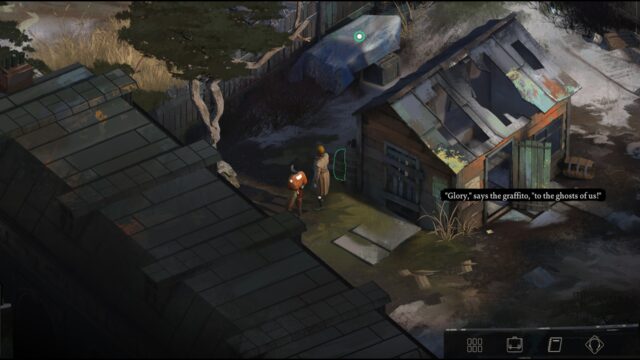Beat Them All! Pokkén Tournament DX Review
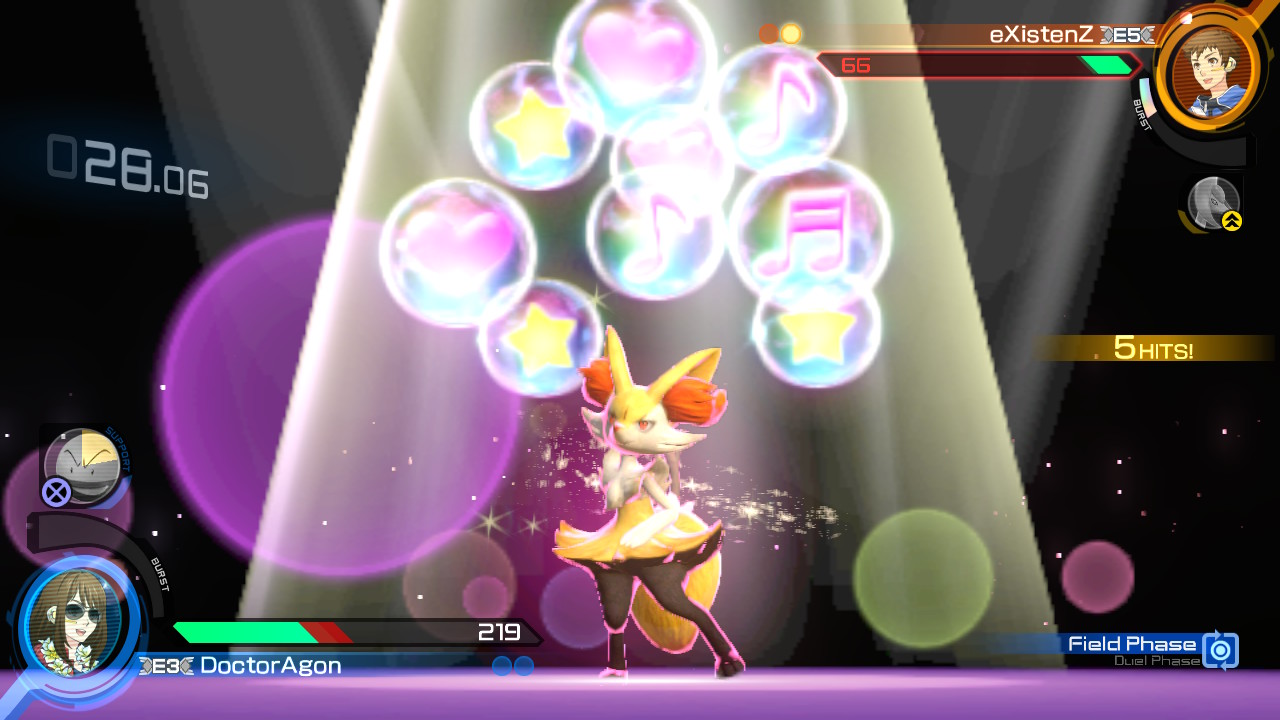
Switch, like any respectable platform of Japanese origin, continues to expand its library of fighting games. However, it mainly consists of ported NEOGEO classics with various variations of the word “fight” in the title, which is cool but not quite what we want. On the current generation console, we want to play something other than a twenty-five-year-old Samurai Shodown, and the only new options for fighting game enthusiasts are the candy-springy ARMS and yet another hyper-ultra-turbo-hadouken version of Street Fighter II. It’s a shame.
Pokkén Tournament DX, on one hand, is not a new game considering that this is already its third release. On the other hand, the previous two releases are not relevant to us: it was initially released exclusively on Japanese arcade machines and then became an exclusive for the Wii U, which is basically as if it never came out at all. Therefore, with a little stretch, we can still consider its appearance on the Switch as a debut.
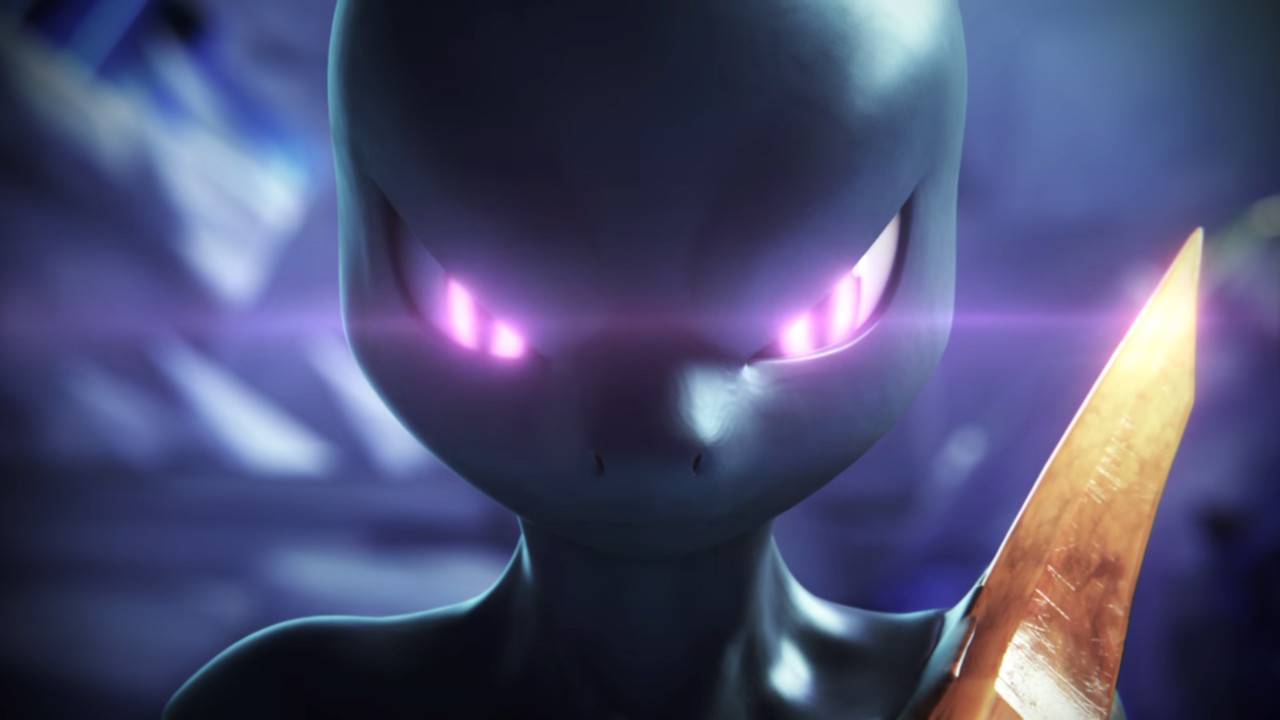
Therefore, it would not be superfluous to remind that Pokkén Tournament is an attempt to pull Pokémon battles out of the stagnant turn-based swamp and present them in a more dynamic and brutal fighting format. In other words, if you have always dreamed of taking direct control of Pikachu and personally beating up a Lucario, this is your more or less only chance to do it without any extra conditions, and even with one long combo.
The resemblance to Tekken, by the way, is not accidental. The battles of pocket monsters are handled by the same Bandai Namco, and the studio’s signature is instantly recognizable. First and foremost, it is recognizable by its ease of mastery. To understand what is going on here and how, a very friendly and concise tutorial helps, which explains the not-so-obvious structure of Pokkén Tournament in just a few minutes. There are nuances, but there is no need to be afraid of them.
The main feature of local battles lies in the constant transitions between two phases, “Field” and “Duel”. In the first phase, fighters freely move around a three-dimensional arena (similar to ARMS as the closest reference point), exchanging long-range attacks at a significant distance. But as soon as one side performs a series of successful strikes, the perspective changes to a traditional side view, in which there are more available moves and they hit harder.
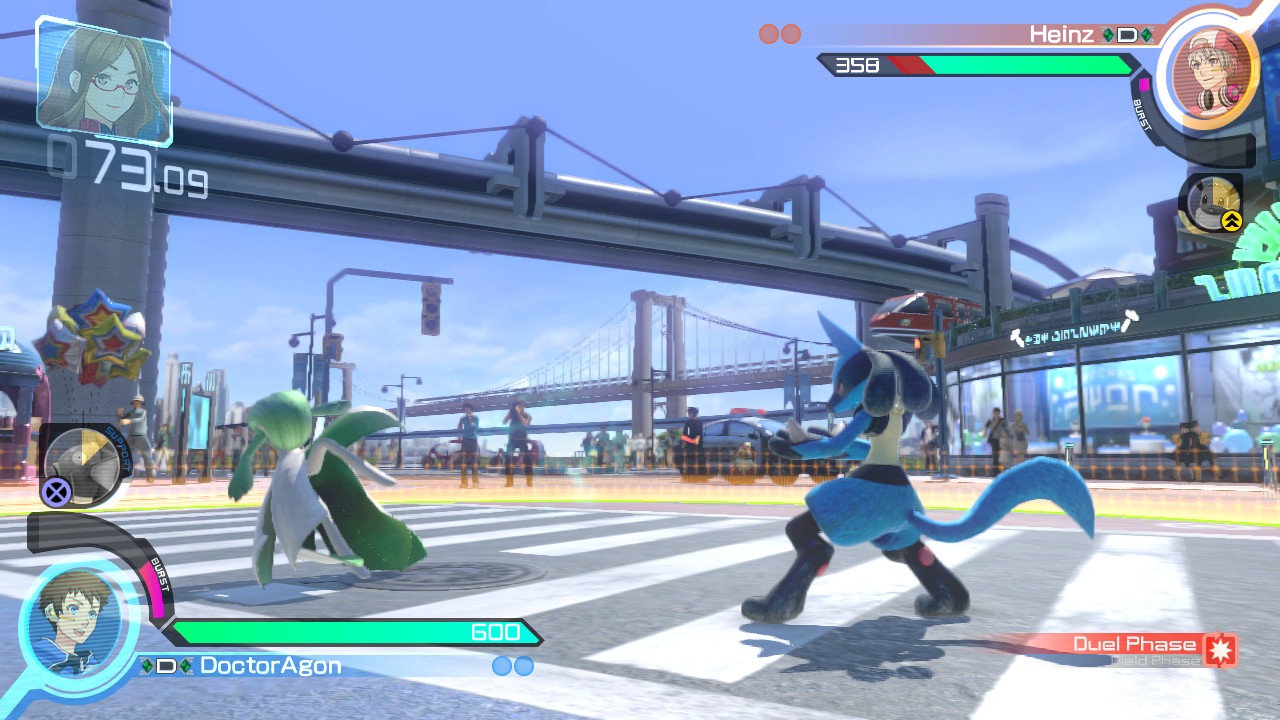
The phase mechanic at first, I must admit, is quite confusing. The constant camera shifts and abrupt move changes require getting used to – but soon you understand the possibilities behind it. With the right skill, jumps from “Field Phase” to “Duel Phase” and vice versa allow you, essentially, to manipulate the pace of the entire battle, either retreating after a dangerous clash or not allowing the weakened opponent to recover. The latter, of course, ideally strives for the same, but that only makes it more interesting.
As for the actual exchange of blows, it follows a simple “rock-paper-scissors” system, in which key moves are incorporated. A regular attack is countered by a counterattack, which in turn is broken by a grab, and a grab, completing the circle, is vulnerable to regular attacks. This system is not new to the genre, but Pokkén puts a specific emphasis on it, consciously turning the fight into a reaction-based guessing game.
In addition to that, there is the Mega Evolution mode, in which the fighters, after filling a separate gauge, can perform super moves, and support Pokémon, chosen by the trainer before the battle. They don’t directly participate in the battle, but rather serve as a trump card, capable of, for example, increasing the fighter’s speed or interrupting the opponent’s powerful attack at the right moment.
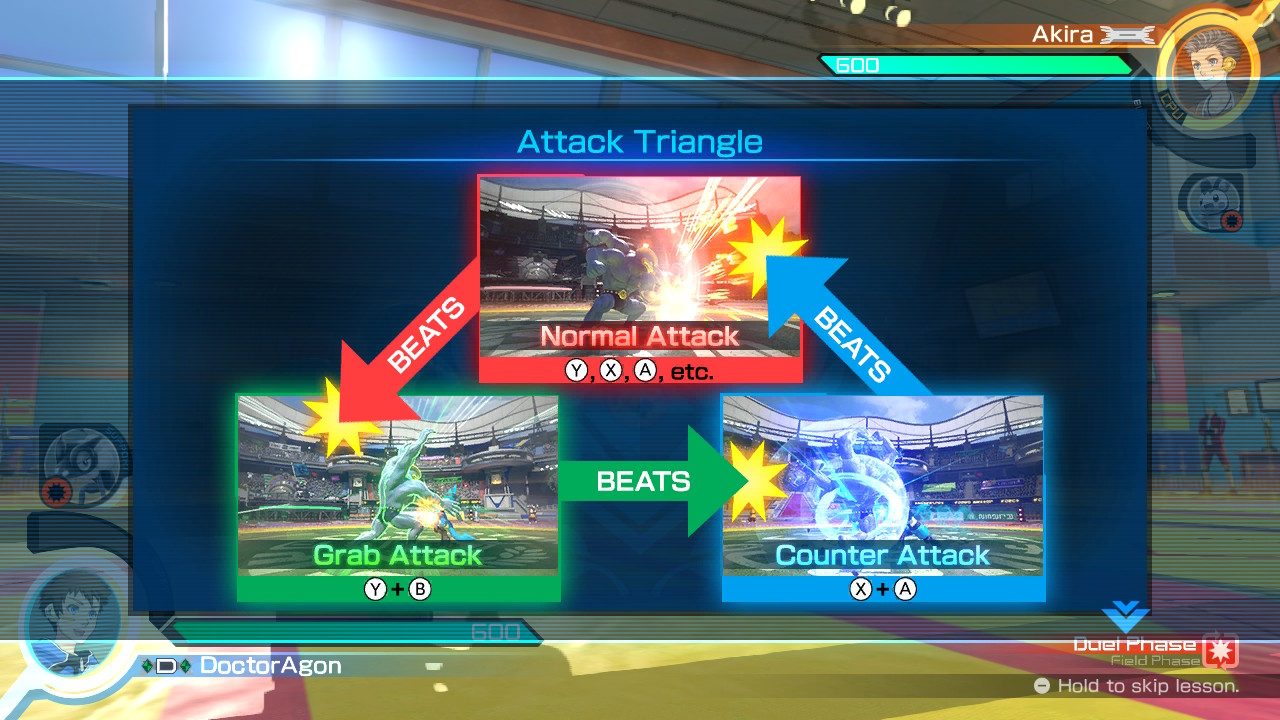
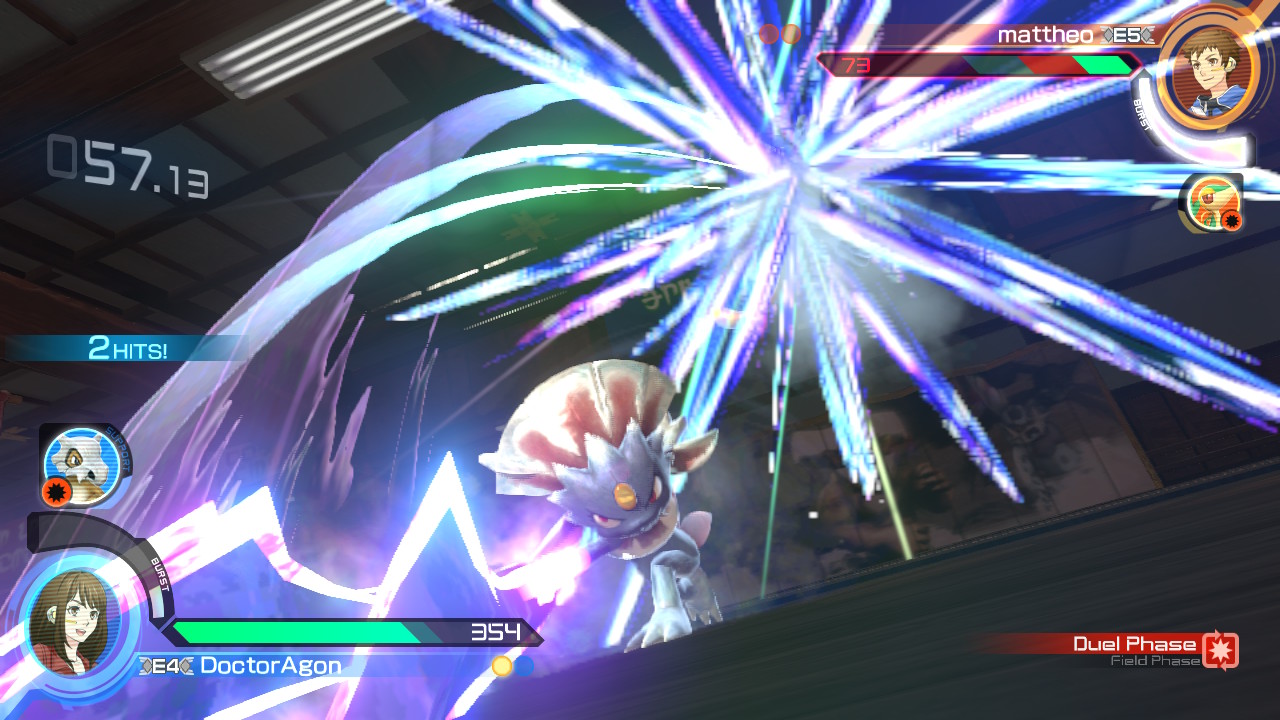
The spectacle that arises from all of the above is indescribable. I often criticize fighting games for the monotony of their setups and for the fact that you have to slog through hours of combo memorization to get to the spectacle, but Pokkén Tournament miraculously fixes this problem. It manages to be diverse and visually impressive at any skill level – largely because many attack sequences come naturally, even without studying character instructions. A step towards a younger audience? Sure, why not. If my efforts to create a coherent style from spontaneous button presses look more beautiful because of it, I’m all for it.
The graphics also contribute to this, even though the Switch version looks exactly the same as last year’s release on the Wii U. Yes, the visuals are lacking in some areas (and a bit dull), especially when playing on a TV and in static images – but the abundance of stunning Pokémon magic more than makes up for the poor backgrounds and unattractive shadows. It sparkles, it dazzles, it glows, it burns, it freezes, and it shines exactly as you would expect in a Japanese game about magical creatures fighting. “The Simpsons” would be proud..
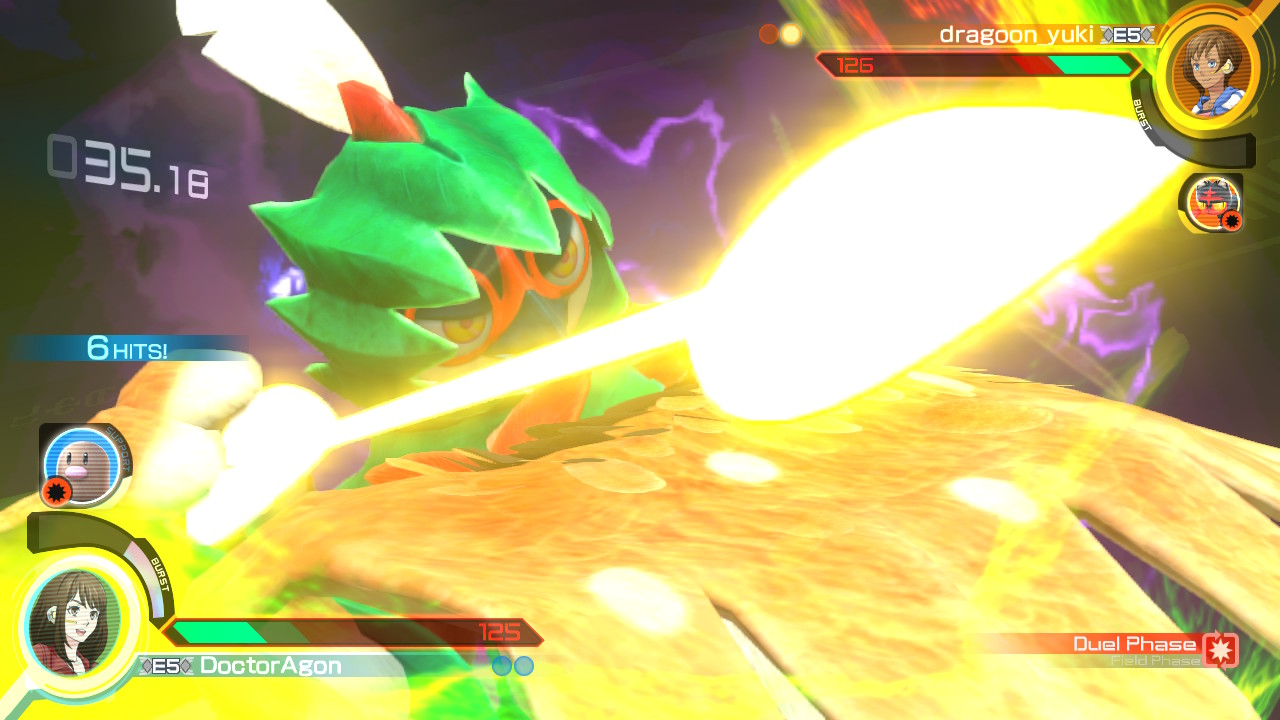
Alas, not all available modes support a desire for diversity. The single-player campaign is practically an ode to mindless grinding. The entire “plot” is presented as a competition between Pokémon trainers, where you have to work long and tediously to achieve a high rank in the tournament standings, occasionally being interrupted by boss fights and simplistic dialogues written and voiced at the level of a themed morning performance.
Perhaps we have been spoiled by “injustices” and “street fighters” that, in addition to satisfying hand-to-hand combat, also provided a coherent story, but this just won’t do.
Furthermore, the limited range of characters is very noticeable here. Let’s do some math! Try to estimate: how many repeated battles does an average player encounter with a roster of 21 monsters, if completing all five leagues of Pokkén Tournament takes at least a hundred or so fights? That’s right, too many. It’s one thing to accept that none of the Pokémon from your childhood collection are featured in the game, but having to face the annoying Gengar for the sixth time is, to put it mildly, tiresome. And we should thank the DX edition for the five additional fighters.
The only motivation to occasionally progress through the story is the customization items that are unlocked for victories… for a flat anime avatar in the corner. It’s something, of course, but alternative skins for the Pokémon themselves would not have hurt. In Super Smash Bros., at least you could put hats on them…
![]()
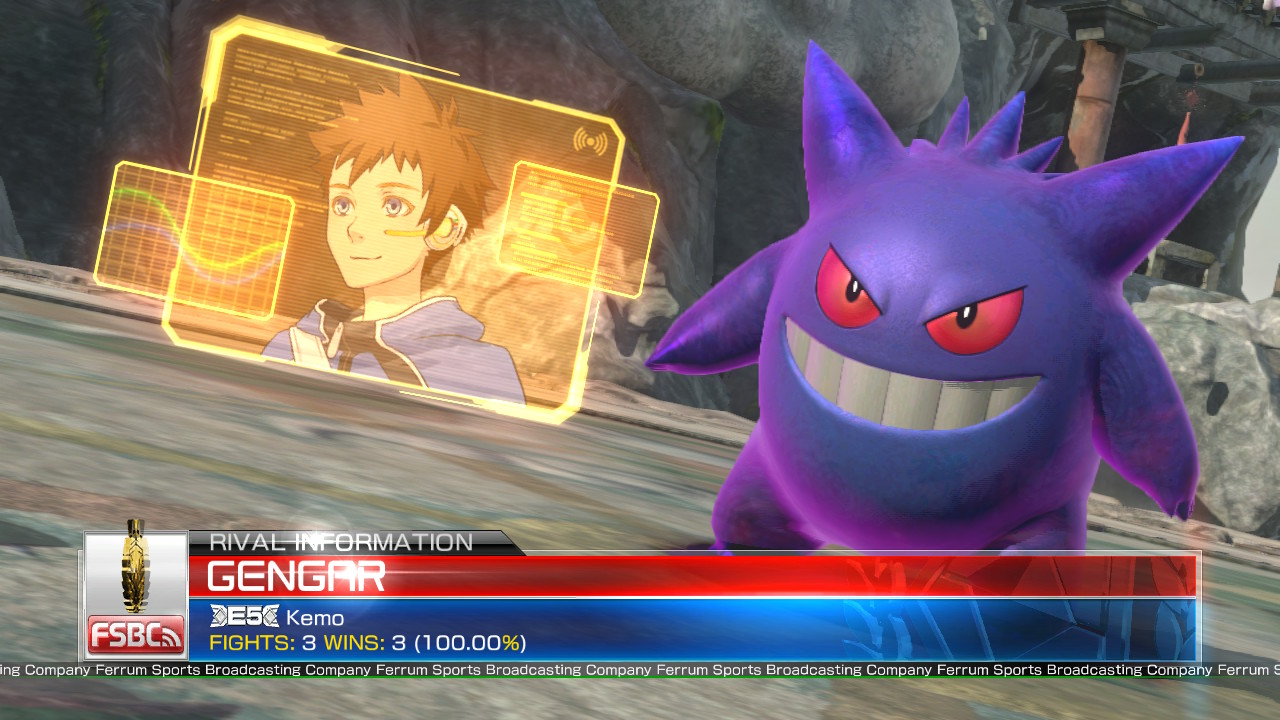
Leave me alone!
Multiplayer, on the other hand, represents a sea of a completely different depth. In online mode, you understand the value of additional techniques, which are only briefly mentioned in training mode, you start to be cautious, pick “supports” according to the situation, and probe the weak points of opponents. There is enough competitive spirit in online matches for everyone who wants it.
But, as in any fighting game, the audience of online games is divided into two camps: people who are too easy to defeat, and people (?) who have spent the last 19 years locked up with the Guilty Gear anthology. Encounters with them usually end in flawless defeat because I never found a connection between memorizing kilometer-long move sets and having fun. Pokkén Tournament already provides everything needed at an average skill level, but there aren’t too many players with the same mindset yet.
However, the technical aspect of multiplayer is in perfect order – even the pre-release version of the game boasted functional matchmaking and stable connection between participants. There have been only two disconnects in the entire time, one of which was caused by a weak network signal.
Perhaps the desired golden mean is represented by the modes added in the Switch port. Among them are wonderful daily challenges that push you to get acquainted with the roster in unusual conditions, 3-on-3 team battles, local multiplayer, and even the rare split-screen – in short, all the joys of a transformer console and a little more. It is impossible to imagine the game without all of this, which once again confirms the need for updates.
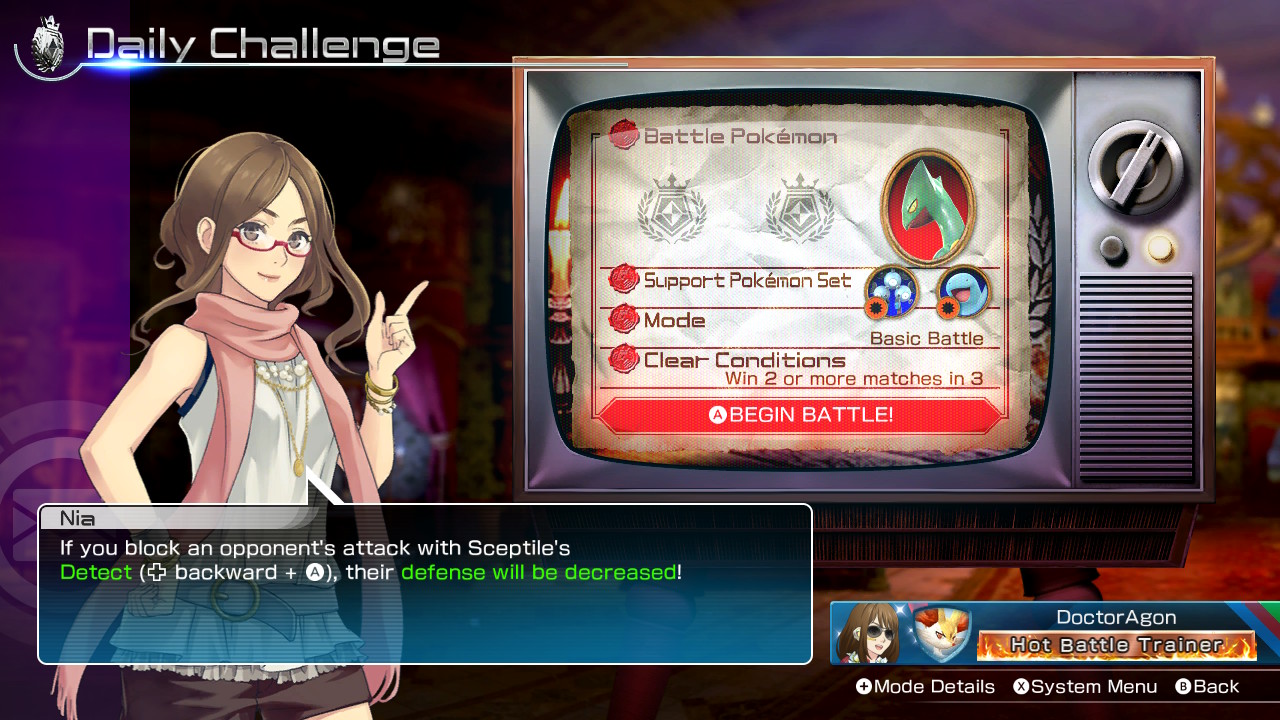
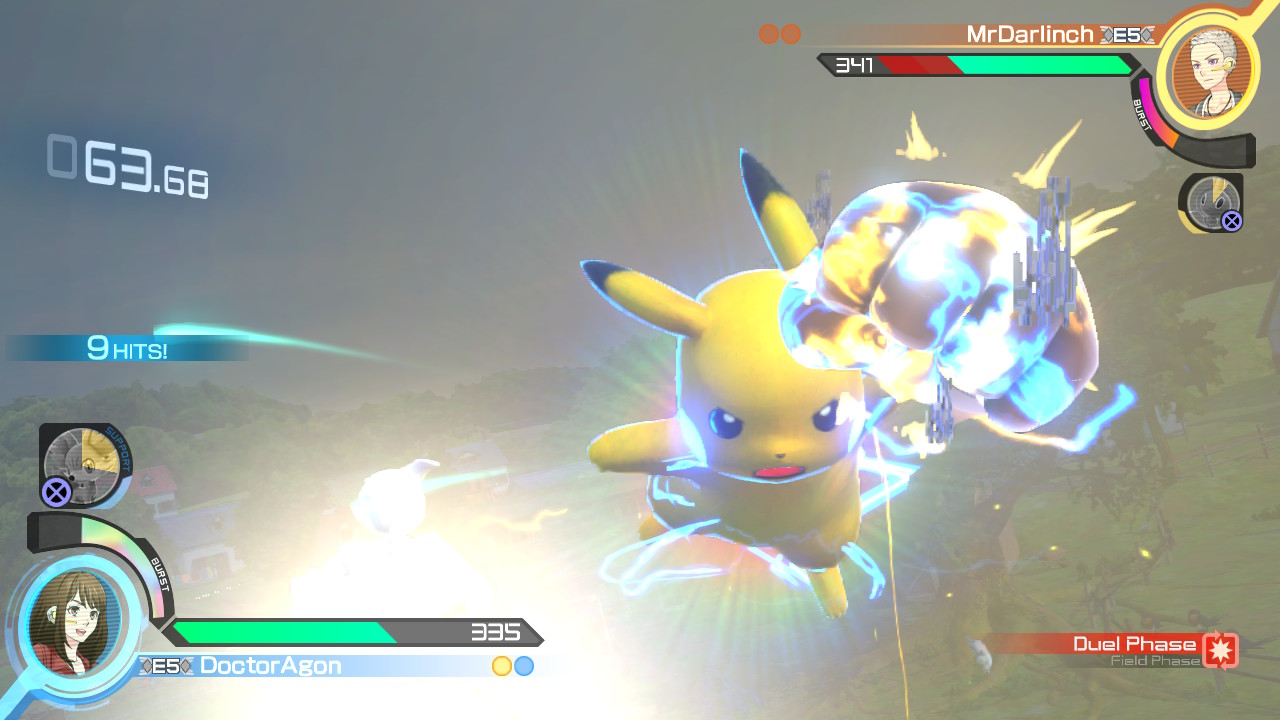
The verdict in two words? Pokémon brawl, with the charm of the first heavily dependent on how much you love the second. At its core, Pokkén Tournament DX is a solid enough fighting game to not consider the Switch port a waste of resources, but it’s likely that only fans of the Pokémon universe will truly linger in it. Well, or very, very bored genre veterans.
Share
Discuss
More Reviews
